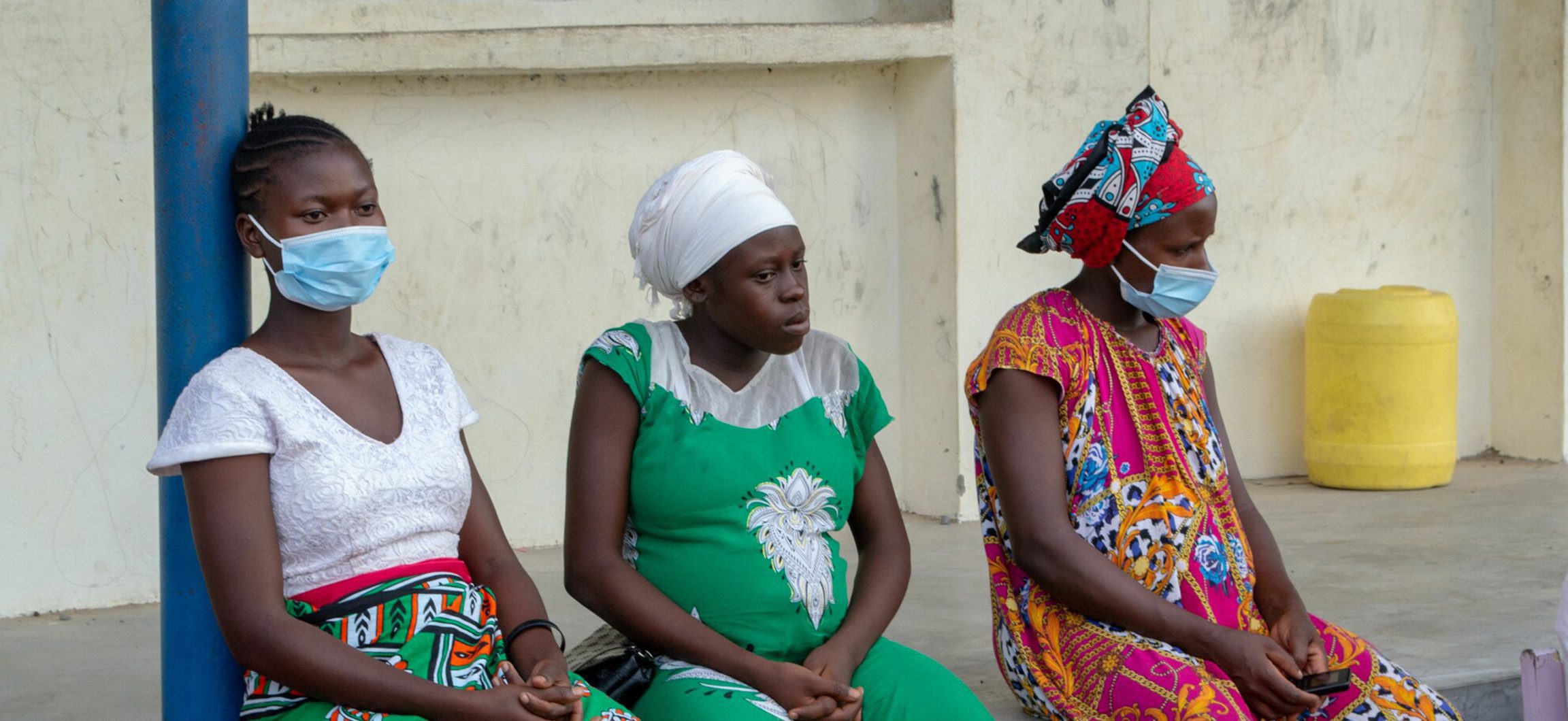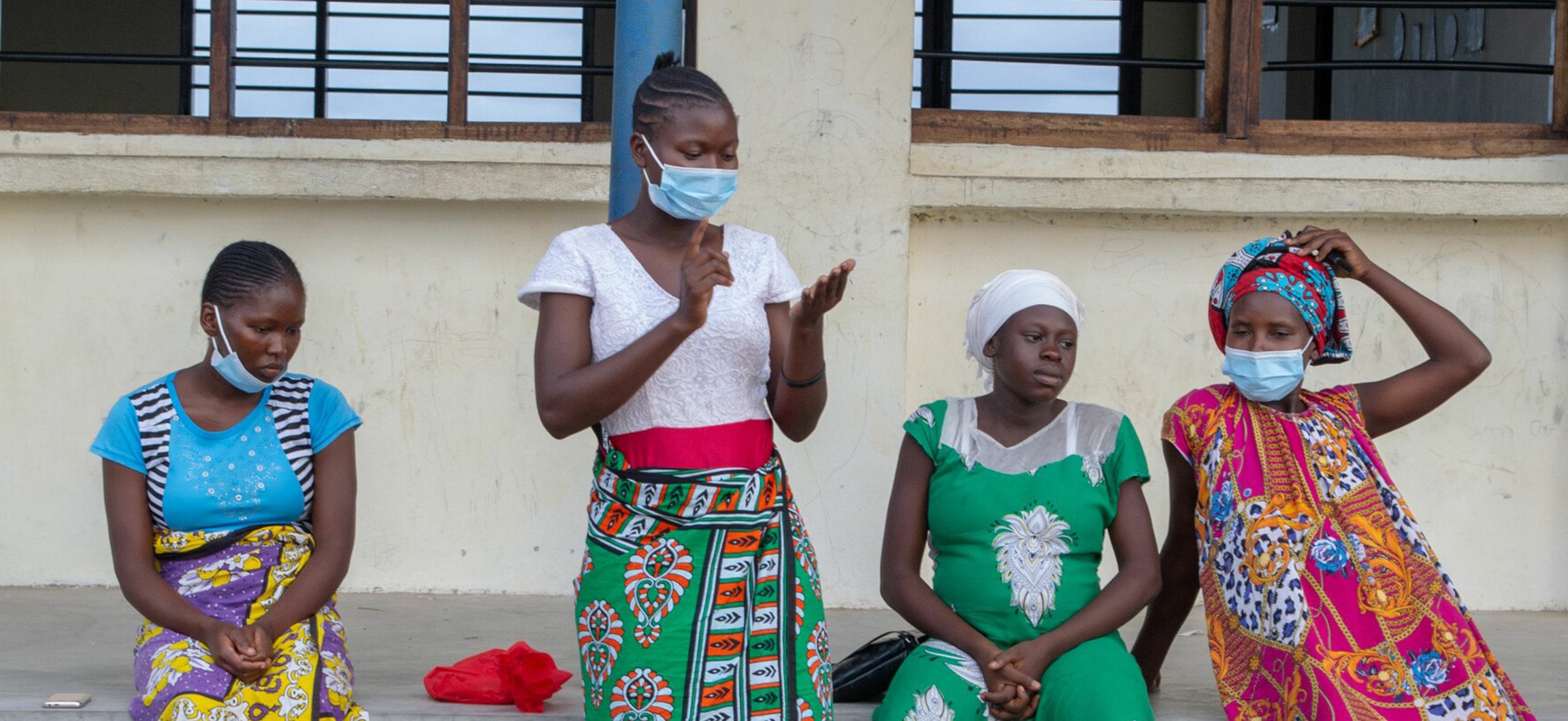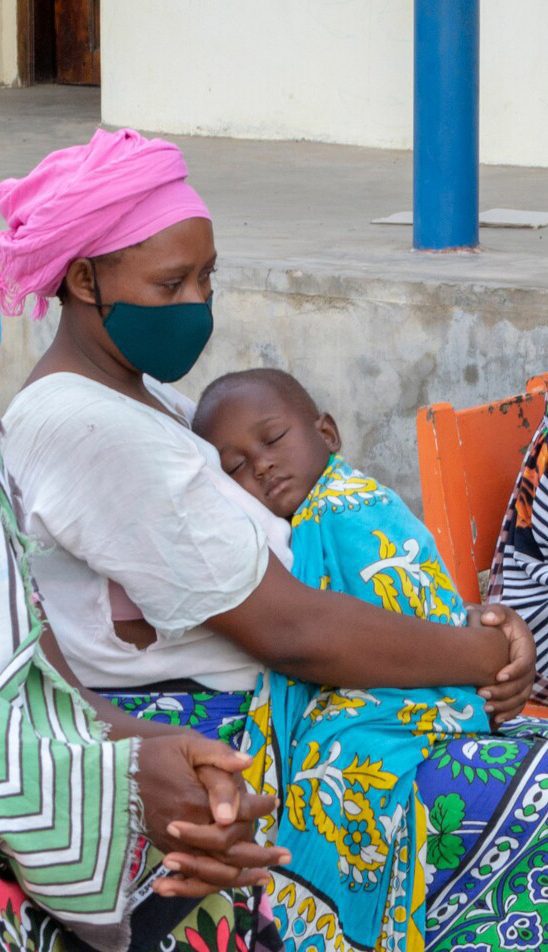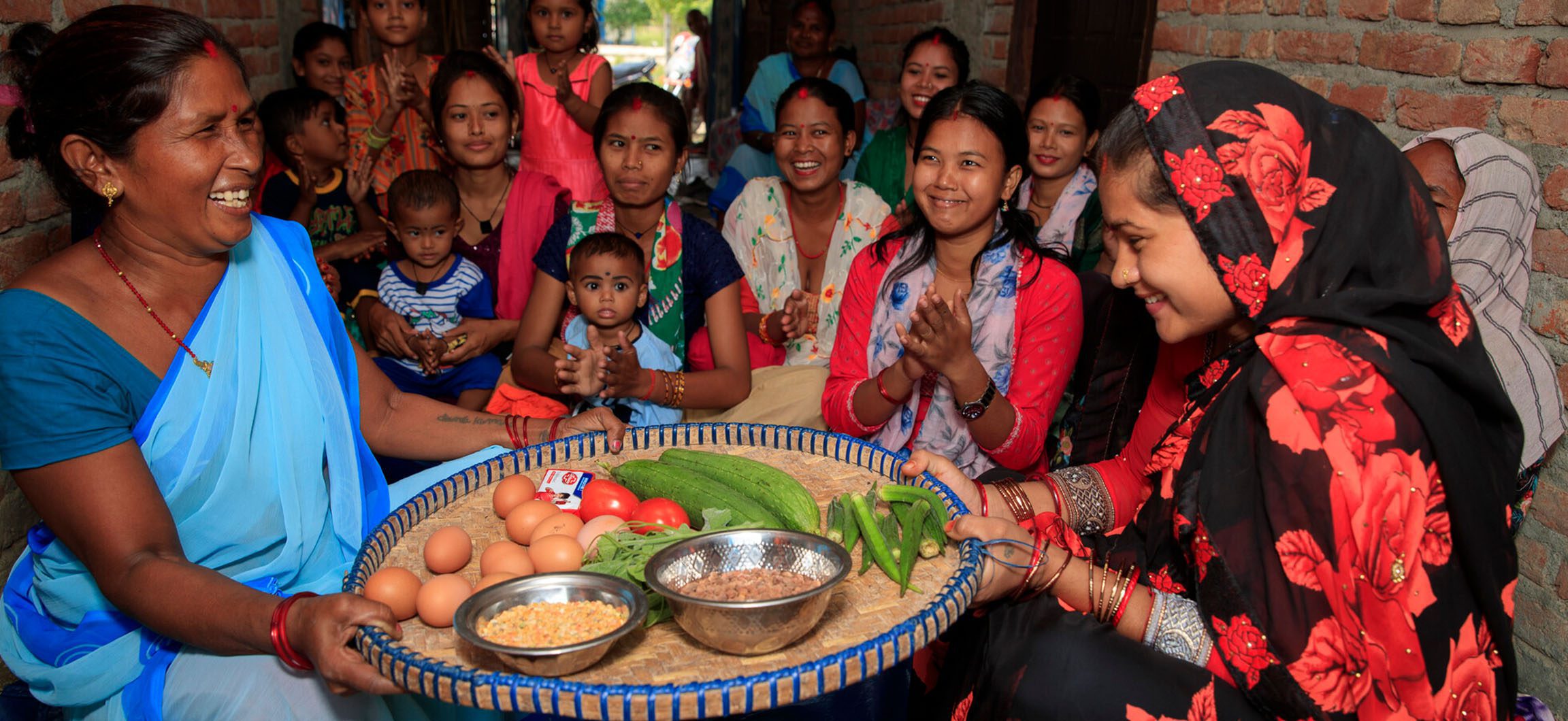“Binti to Binti” in Kenya helps mothers ensure the health of their children
Patience Pendo, a young mother of two expecting her third child, had a feeling that her pregnancy would pose difficulties. But she was determined for things to go differently this time.
“I had carried another pregnancy earlier, but it came out prematurely [and I lost the child]. I knew I might face the same problem because I was experiencing the same symptoms. But I got advice from the community health volunteers and started clinic early,” she said.
Reaching young mothers with vital health guidance along Kenya’s coast

Helen Keller Intl trained volunteers and partners work with Pendo and other young mothers like her along Kenya’s coast. In addition to giving guidance throughout their pregnancies and providing them with education about nutrition and health, the volunteers connect mothers under age 30 with a support system of other women.
They’re empowered — and also to ensure that their [babies’] health is right, we focus on conception, pregnancy, during delivery, and even after delivery.
Jessicah Kadeche, Head of Family and Health Services
“They’re empowered — and also to ensure that their [babies’] health is right, we focus on conception, pregnancy, during delivery, and even after delivery, with follow-up of the children’s various needs: nutrition, immunization and everything else,” said Jessicah Kadeche, Head of Family and Health Services.
“Binti to Binti” – “Sister to Sister” in Swahili – is a peer-to-peer learning group designed to ensure that young mothers embrace good nutrition practices in their communities for the long haul. By empowering young mothers to support one and other, Helen Keller is helping to build sustainable change in the community.
“We mobilize them in the community, then explain to them the benefit of certain services and they understand,” Philipina Karisa, community health extension worker.
Sister-to-sister peer mentoring offers long-term support in local communities

The peer mentors are often already familiar with the women they guide, and they highlight best practices for maternal care and nutrition, vitamin A supplementation, deworming medication, and nutrition monitoring – all of which can improve pregnancy outcomes and infant health.
When Pendo joined the peer group, the process was emotional and sometimes overwhelming. There was a lot to learn, from how to eat healthy foods for breastfeeding to health interventions that could improve postpartum outcomes.
“As a group, we have been taught many things, like starting antenatal clinic early and how to take care of your pregnancy,” said Pendo. “Although I faced difficulties at the beginning, now I see the benefits of being in the group.”
After birth, Helen Keller continues health interventions

Helen Keller partners and volunteers also play an active role in the years after infants are born, keeping the new parents engaged in their children’s health. The program includes door-to-door campaigns that focus on screening for malnutrition, providing vitamin A supplements, and deworming.
“Kenya has very few facilities, and many children are not able to access health facilities, so by working with our community health volunteers, we’re able to take the services to their doorstep and provide interventions at that point,” said Asa Leilei, Manager of Every Child Thrives Project.
With her third child delivered safe and healthy, Pendo has continued to stay involved with her Binti to Binti group, sharing what she has learned with other expecting mothers. Pendo has also been tapping knowledge from her peer mothers in the group, practicing what she learned and teaching to her children. and applying it.
“When you follow what the community health volunteers are telling you, you will win,” she said.

You can empower mothers like Pendo to build sustainable change in their lives and community.









